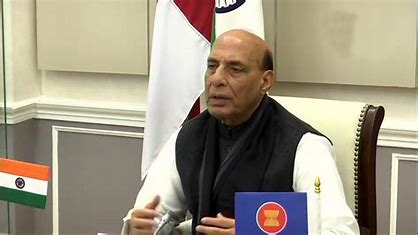
It was during one of my music-appreciation workshops that I came across this question, “What’s the funda?” It cropped up time and again in response to musical pieces that were played for the participants. Reflecting on it, this is a question that I have encountered in some form or the other all through my years of teaching and performing. I initially found this question intriguing. Being primarily a creative and emotional person, I found it curious to see that people tried to approach music appreciation with their intellect rather than with their gut.
One fine day, I realised why people kept asking me this question. I was at an art gallery with an art curator friend of mine. She was taking me through some works of Indian contemporaries and some classic greats. She spoke passionately about what those paintings meant and what they tried to convey. She mentioned the subjectivity in the matter and how each person’s psyche layers the interpretation of the art. A few pauses later, I blurted out, “So what’s the funda?” As soon as I said it there was dejection and surprise, both in my friend’s face and mine. We were both feeling helpless at that instant—I was trying my best to understand art and she was trying her best to explain it to me. I got it then!
What we tend to do when we are unable to deal with emotions or are unable to tune into the essence of something, be it music or art, is that we try to use our intellect or logical skills to break it down. It just seems like a more comfortable place to be. You might have seen this play out in real life; when we lose our jobs or go through a break-up, we are tempted to explain to ourselves ‘logically’ why it was a good thing that happened to us.
It’s all in the brain, they say. While the brain is complex, for ease of reference, the left brain is used to denote logic, reasoning and structure, while the right brain connotes creativity and lateral thinking. Music is primarily an emotive art form and is processed in the emotional and creative centres of the brain, including the amygdala, and is therefore linked to the right brain. Some aspects of music, like taal and structure, may involve the left brain too. When our right brain is either unable to comprehend or is uncomfortable with something, we use our left brain by default. That may explain the “what’s the funda?” phenomenon we see often.
Music is a magical, emotive, transcendental and transformative experience. Using only the logic and intellect to process it does great disservice to this art form. One of the participants, an elderly gentleman, in a music workshop I conducted, repeatedly refrained from experiencing what he was hearing and instead kept insisting on finding out the why’s and the how’s of the music. There came a point when I had to ask him to consciously stop thinking and just experience the music. I persisted at this and over a period of time, he learnt to smile, nod and sway his way through the music rather than intellectualize it. He is an earnest student now. I later came to understand that something about classical music had intimidated him and he was using intellect as a defence to deal with that.
When we understand why we are afraid to feel, we stop using the intellect beyond what is needed and allow ourselves the luxury of ‘experiencing’. For in the magic of feelings and experiences lie hidden the beautiful secrets of life. Just as we cannot explain the beauty of a sunrise, or fathom the vastness of the night sky or truly understand what love really is unless we ‘experience’ these, so is true of music and of life.
So ‘What’s the funda?’ Nah. The question should be ‘Can I experience the magic?’ The answer is an unequivocal yes. If we can be brave and open enough to allow the music of life to take over. And that, my friend, is the funda!
The writer is a vocalist of both Hindustani and Carnatic Classical music, with over three decades’ experience. She is also the founder of Music Vruksh, a venture to make classical accessible for its aesthetic and wellness benefits.















